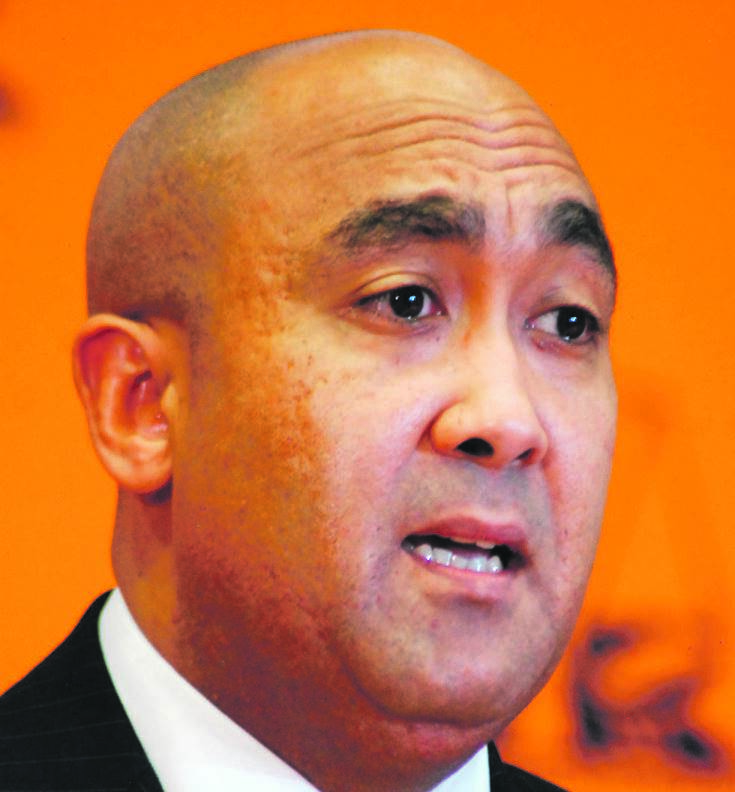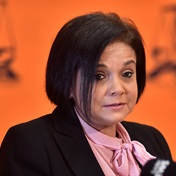
Former National Prosecuting Authority (NPA) head Shaun Abrahams says President Cyril Ramaphosa feared that the appointments of senior prosecutors concluded by his predecessor, former president Jacob Zuma, were “fast-tracked” to counter his political victory as the new president.
This is according to court papers filed last week by Abrahams, who said Ramaphosa acted unlawfully by revoking Zuma’s decisions without resorting to the courts. He said this infringed on the principles of legality.
Presidency director-general Cassius Lubisi had told the court that there was no information available to them on how the appointments, made by Zuma in the dying days of his presidency in February last year, managed to go out beyond the walls of the Union Buildings.
He said the process was not finalised since Zumadid not communicate it publicly or privately to the affected parties.
But Abrahams, who recommended the contested NPA appointments to Zuma before both were chucked out of office, told the court that he had a meeting that was “two to three hours long” with Ramaphosa months prior to the revocation, when he briefed him on the status of the appointments and the processes leading to them.
He said Ramaphosa showed no signs of opposition but later decided — unexpectedly — to reverse the appointments.
“At no stage during my two- to three-hour meeting with the president did he give any indication directly or indirectly that he was opposed to the appointments or that he wished to have the appointments rescinded.
“The president and I departed on the understanding that he would communicate with the then minister of justice and correctional services, [Michael Masutha] on the announcement,” said Abrahams.
He said Ramaphosa had come to the meeting “under the misapprehension that the appointments were fast-tracked as a direct result of him having ascended to the position of president of the ANC and subsequently as the president of the country”.
Abrahams said he “reassured him that this was not the case [and] that politics had no role to play in the recommendation and subsequent appointment of any of the appointees; that all the appointees were career prosecutors; that each appointee excelled in their respective fields of expertise; that the appointees were young, intelligent, energetic and could make significant contributions to the future of the NPA”.
Zuma appointed five senior prosecutors just before he was fired by the ANC in February last year and replaced by Ramaphosa.
The appointees were advocate Raymond Mathenjwa, director of public prosecutions for Mpumalanga; advocate Malini Govender, director of public prosecutions for the Free State; advocate Ron Mncwabe, director of public prosecutions for the Northern Cape; advocate Jacobus Pretorius, special director of public prosecutions for the priority crimes litigation unit; and advocate Bonnie Currie-Gamwo, special director of public prosecutions for the sexual offences and community affairs unit.
The papers filed by Abrahams last week relate to Mathenjwa’s separate application to overturn Ramaphosa’s decision to revoke the appointments.
They set out the background to Zuma’s decision, including a raft of notes, memoranda and minutes of meetings during which the process was discussed from January 2017 until Zuma signed in February last year. Abrahams is not opposing the application.
Only two others, Pretorius and Mncwabe, have lodged their separate bids to reverse the cancellation of the appointments.
City Press learnt that the parties in the legal dispute are due to meet Pretoria High Court Deputy Judge President Aubrey Ledwaba on Tuesday to discuss joining all the matters into a single case.
In a move seen as being driven by political considerations, Ramaphosa revoked the appointments of the five top NPA officials in March this year – more than a year after Zuma signed the respective presidential minutes to ratify the decision.
Ramaphosa claimed the appointments were not “finalised” and could therefore be revoked.
Lubisi said in an answering affidavit to Mncwabe’s separate challenge that the fact that there were no formal records available of Zuma’s decision being processed to Masutha for implementation, and that the decision was not communicated privately or publicly to the appointees, meant that the appointments were not final.
He said this meant they were not final due to failure to satisfy section 101 of the Constitution, which provided that “a decision made by the president must be in writing if it (a) is taken in terms of legislation or (b) has legal consequences”.
Explaining the possible reasons behind the matter not being finalised at the time, Lubisi said that “in or about early February last year, the emails of the presidency stopped working.
As such, there is no record of the presidential minute having been emailed back to the department.
“It is possible that hard copies were collected by officials in the justice department; however, there is no formal record in the presidency showing how [or if at all] the minutes might have been transmitted to the department.”
He said Abrahams informally passed Zuma’s decision on to Mncwabe because “it is highly unusual for appointees of the president to be furnished with the presidential minute, which is an internal formal record of the president’s decisions.
“It is not ordinarily released into the public domain,” he said.
Lubisi said that, although Zuma’s decisions to make the “appointments” were duly minuted, signed and countersigned when he left office, “news of Zuma’s decisions might have leaked [as] neither he nor the presidency ever officially informed the appointees of their appointment, whether by private notice or public announcement”.
Nine months after Ramaphosa reversed the promotions of the affected senior prosecutors, a presidency legal adviser met Abrahams to discussthe case.
Abrahams did not elaborate on the purpose and agenda of the meeting, saying only in court papers that he advised the unnamed presidency official that he would be “filing an affidavit in the matter and what the gist of my affidavit would entail”.
He said the public announcement of the appointments was delayed only because Zuma did not want Ramaphosa “to first hear about the new NPA appointments through the media, but first-hand through him and the then minister [Masutha]”.
 |
| ||||||||||||
| |||||||||||||




 Publications
Publications
 Partners
Partners








